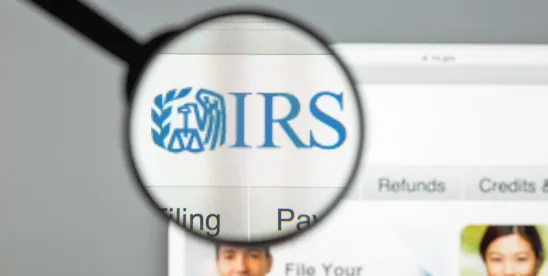|
Earlier this week, the IRS released Notice 2024-77, which provides much-anticipated guidance related to the handling of so-called “inadvertent benefit overpayments” from qualified retirement plans under the SECURE 2.0 Act. The Notice provides information on whether and when a plan sponsor is obligated to attempt to recoup an inadvertent benefit overpayment from the IRS’ perspective, as well as guidance on the rollover treatment of inadvertent benefit overpayments. It is important to note, however, that the Notice does not address the ERISA aspects of handling inadvertent benefit overpayments under SECURE 2.0. There are a number of open issues in this area which have garnered much industry attention. We anticipate guidance from the Department of Labor on that topic. General Provisions of Notice 2024-77 Prior to the passage of SECURE 2.0, IRS guidance generally required plan sponsors either to recoup overpayments from participants or to fund corrective contributions themselves. In addition, this guidance required plan sponsors to notify participants that the overpayments were not eligible for rollover. SECURE 2.0 generally provides additional flexibility to plan sponsors in terms of whether to recoup inadvertent benefit overpayments made to participants or beneficiaries. The Notice defines an inadvertent benefit overpayment as a benefit payment which exceeds the proper amount payable under the terms of plan or the limitations of the Code, which: occurs despite plan practices and procedures that are designed to prevent such an error, is not egregious, does not relate to the diversion of plan assets, and is not related to an abusive tax practice. In practice, we expect that this definition will cover the vast majority of all overpayments from retirement plans. Under the new rules, provided an overpayment qualifies as an “inadvertent benefit overpayment,” the plan sponsor generally is not required to seek recoupment of the overpayment, but may do so, at its discretion. The Notice also addresses the rollover treatment of inadvertent benefit overpayments. If a participant rolls an eligible inadvertent benefit overpayment into an eligible retirement plan, the rollover will retain its tax favored status, so long as the plan sponsor does not seek a recoupment of the inadvertent benefit overpayment. If, however, the plan sponsor seeks recoupment, any amount that is unreturned will not be treated as an eligible rollover distribution. (Note: This potentially puts plan sponsors in an awkward position and is likely to discourage recoupment attempts in many cases.) If the plan sponsor seeks recoupment of the inadvertent benefit overpayment and it is returned, the amount that is transferred back will be treated as an eligible rollover distribution with respect to both the original rollover and the transfer back to the originating plan. This is a welcome solution that resolves the frustrating issue of participants being taxed on returned overpayments. Exceptions to the Guidance It is important to note that the relief described above generally does not apply where the eligible inadvertent overpayment resulted from a violation of Code Sections 401(a)(17) (relating to the maximum amount of a participant’s compensation a plan may take into account), 415 (relating to the maximum benefits payable under a plan), or 436 (relating to funding-based benefit limitations for defined benefit plans). Such overpayments generally will require recoupment or a corrective contribution from the plan sponsor. In the case of Section 436 violations, the rollover treatment rules (based on whether a recoupment is or is not sought) apply. In contrast, overpayments resulting from Section 401(a)(17) or Section 415 violations are automatically treated as though recoupment is sought, and so any unrecouped overpayments will not be treated as an eligible rollover. Effective Date The guidance provided by the Notice is effective immediately. |
IRS Weighs in on Inadvertent Benefit Overpayments
Thursday, October 17, 2024
Current Public Notices
Published: 15 September, 2025
Published: 15 September, 2025
Published: 9 September, 2025
Published: 9 September, 2025
Published: 8 September, 2025
Published: 4 September, 2025
Published: 28 August, 2025
Published: 25 August, 2025
Published: 22 August, 2025
Published: 20 August, 2025
Published: 20 August, 2025
Published: 18 August, 2025
Published: 11 August, 2025
Published: 8 August, 2025
Published: 26 June, 2025





 />i
/>i

